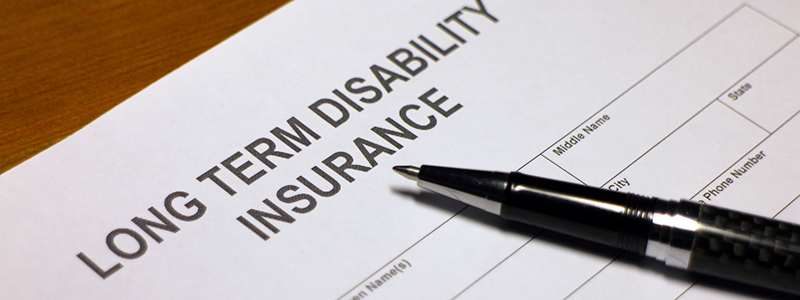Are you suffering a disability that’s impairing you from working?
Have you been terminated from your workplace?
Are you wondering if your employer can be held liable in providing you with disability benefits after you’ve left?
In Ontario, the employer can be considered an agent of the insurer, making them responsible for the payments of long or short term disability benefits. This includes loss of salary and any other monetary disregards encountered along the during of time.
If your case is structured properly you may be entitled to seek recovery and damages for your losses. This is an important reason why hiring a lawyer and seeking legal advice could benefit you tremendously.
Before we divulge into the circumstances as to which your employer can be liable for your long or short term disability benefits, let us explain a term to you:

Reasonable Notice
The number one thing to remember here is that the employee is entitled to reasonable notice of their termination. Reasonable notice in an employment sense, is giving the employee proper notice as to when they will be paid until.
The way reasonable notice is determined and sought out uses a variety of key factors. These telling factors include:
- Age
- Length of service
- Position
- Availability of similar employment
All of these considering factors follow one underlying principle. The employee must be envisioned in the same position they would’ve been in, if the employment had been completed according to its terms.
In this light, if the employee fails to provide reasonable notice, he is therefore liable for all damages suffered during the duration of time.
Reasonable notice is essentially a tactic put into place to prevent employers from having to concur these fees. Therefore, there are circumstances that happen when an employer fails to comply that can benefit your claim.
In fact, some Ontario courts have implemented a rule in which the employee has the right to receive disability payments, and pay from failure of reasonable notice.

Exceptions From Reasonable Notice
If you’re wondering if your situation falls within these exemptions, let us explain to you the two major circumstances in which employers are held liable. If you fall within these categories, then with the proper assistance and case structure, you can be entitled to seek all the benefits you deserve!
Circumstance #1:
The first circumstance to which an employer can be held liable is if the employee in question was terminated without case. This deals with you being terminated without any given reason. Unless you’ve signed a contract stating you are an at-will employee, then an employer is required to give you reason and reasonable notice.
In this situation, if the employer fails to provide this case/reasonable notice then you shall be entitled to receive:
- Value of lost salary
- The amount of lost benefits
- Value of out of pocket expenses that you incurred.
Circumstance #2
The second circumstance to which an employer can be held liable is if the employee’s benefits were terminated and they then became disabled within the notice period. During this time, your employer can be held responsible for paying your STD/LTD benefits.
Failure to keep providing disability coverage can result in a sufficient claim on your behalf. Benefit claims include:
- Medical and dental benefits
- Short term and long term disability pay
- Life Insurance
- Pension or RRSP
- Equity compensation
- Car allowances/company vehicles
- Vacation pay, etc.

Examples of Cases
We’ve provided examples of real cases to help you get a better understanding.
Case #1: Brito v. Canac Kitchens
In this case, Canac Kitchens terminated a 55 year old employee who had over 24 years of service to the company. This employee found another job 2 weeks later, that didn’t include STD/LTD benefits. Shortly after starting this new job, the employee became diagnosed with cancer.
Because this disability took place during the 22 months notice period implemented from Canac Kitchens, he received $200,000. This number reflects the amount of LTD benefits he would’ve received up till age 65.
Case #2: Dhatt v. Kal Tire Ltd. (2015)
In this case, the employee sued his former employer Kal Tire Ltd. for wrongful dismissal. He was claiming damages for his loss of LTD benefits he would’ve received if he was working until the end of the reasonable notice period of 21 months. The employee then became disabled during this period.
The plaintiff was successful in winning the case. He received the rightful damages to make up for his losses.

Conte Jaswal Can Help
We want you to get the most out of this situation. In order to structure your case in the most effective manner you need the services of a lawyer who has the experience and understanding required to get you what you deserve
At Conte Jaswal, we are empathetic to your situation. We’ll fight for you and be your advocate when you go up against the big insurance companies. You do not have to do this alone.
Book a free, no-obligation consultation with us to discuss your options. Accidents happen, but we can help you get the compensation you need to recover.
Contact Conte Jaswal now to start getting your life back on track!





